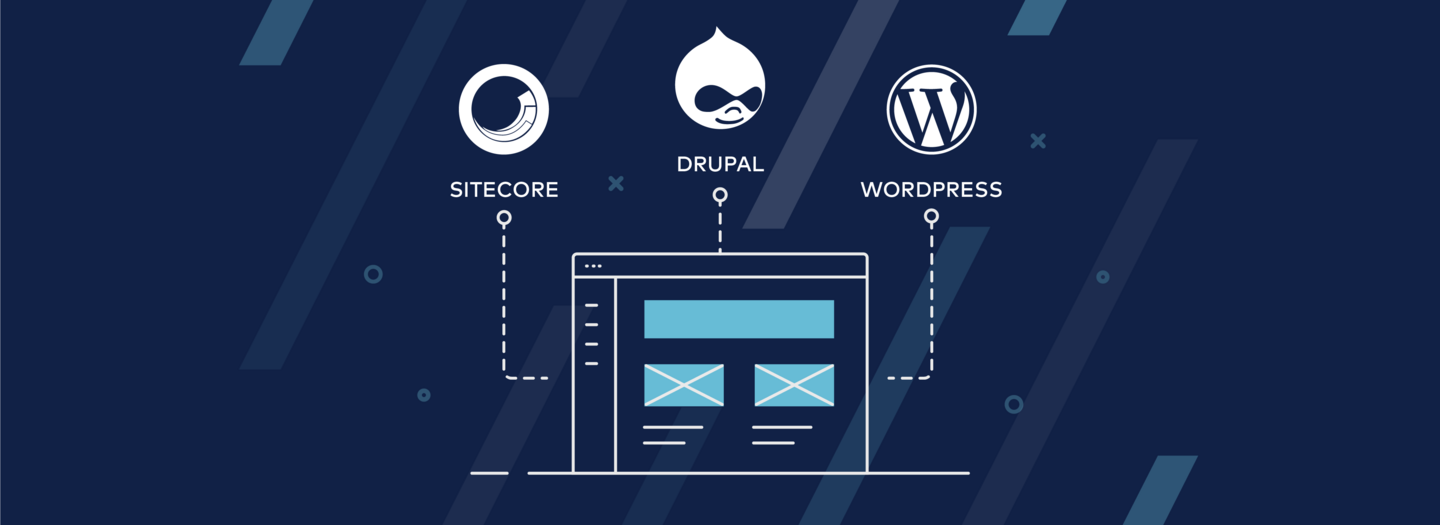Understanding the differences between Drupal, WordPress, and Sitecore
Three of the most popular content management systems on the market today are Drupal, WordPress, and Sitecore. At FFW, we work with all three, and often find ourselves answering questions about what makes each platform distinct.
First, it’s important to know the difference between open source and closed source software. "Open source” means that instead of being developed by a company, a software or platform is instead developed by a community of volunteers, and is available for free use by anyone, anywhere. In addition to the lack of licensing fees, the main strength of open source software is that it’s built by the people who are ultimately going to use it, and that it has a much more transparent process to address potential security vulnerabilities. “Closed source” software, on the other hand, is generally built by a company, and is available for a price. However, because it is guided by a single owner rather than a community of owners, closed source softwares tend to have more innovative functionalities, and are built to be more appealing to users.
Drupal and WordPress are both open source systems, while Sitecore, on the other hand, is a closed source system. This means it comes with licensing fees, whereas WordPress and Drupal are both free to use. However, because Sitecore is a proprietary platform developed by a privately held company, it has expensive and innovative features that Drupal and WordPress both lack. Sitecore is the platform of choice for organizations that are serious about offering content personalization: it comes built-in with some of the strongest marketing automation tools on the market.
In terms of technical features, WordPress is at a place halfway between Drupal and Sitecore. Though it’s open source, there’s a large ecosystem of paid plugins that are available, and have been developed by organizations for business purposes. WordPress is an excellent publishing platform, and for organizations that want to quickly spin up a new publishing site with relatively minimal features, WordPress is an ideal choice.
Drupal, however, is by far the most flexible platform of the three. Drupal offers incredible customization options, and for organizations that need a completely custom platform, Drupal is an excellent choice. It has a large community of free modules, though oftentimes the modules may take more work to connect than WordPress’ paid plugins do. Drupal offers all of the features that are available in both WordPress and Sitecore because it is so extensible, and so easy to integrate, however the cost of actually developing those features can be high.
Ultimately, the choice between Drupal, Sitecore, and WordPress depends on what your organization’s specific needs are. For help determining which solution might be best for you, and to discuss what an ideal platform might look like, contact us. You can also download our two recent eBooks: Drupal versus Sitecore, and Drupal versus WordPress, which provide greater depth of contrast between the three platforms.

